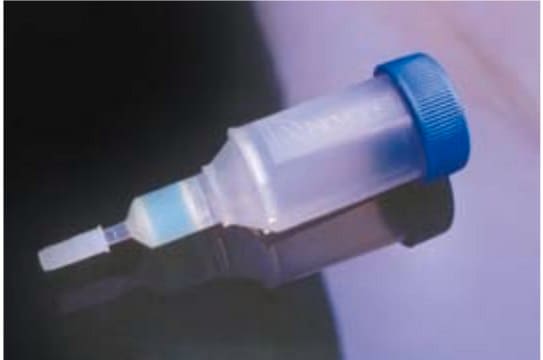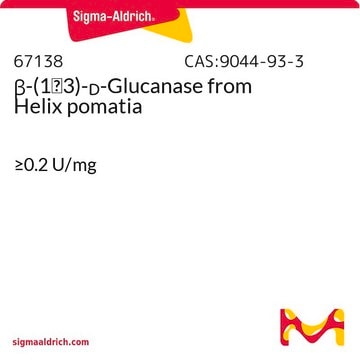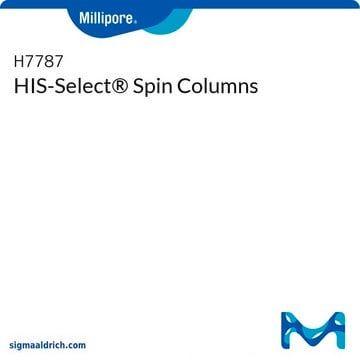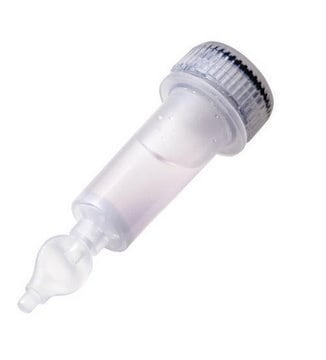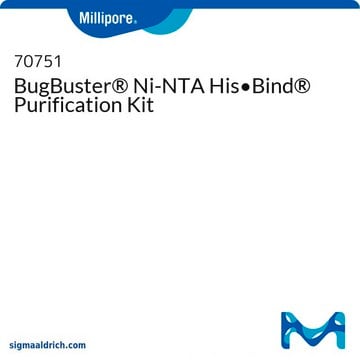H0537
HIS-Select® HF Nickel Affinity Gel
Synonym(s):
Ni-NTA HF resin
About This Item
Recommended Products
form
suspension
Quality Level
technique(s)
affinity chromatography: suitable
matrix
Highly cross-linked 6% Beaded Agarose
capacity
15 mg/mL, gel binding capacity (protein)(with an approx. 30 kDa protein)
storage temp.
2-8°C
General description
Application
Features and Benefits
- High selectivity for higher purity
- Unique non-charged hydrophilic linkage reduced non-specific binding
- Binding Capacity for histidine-tagged protein (His-tag protein) is greater than 15 mg/mL
- Highly cross-linked agarose matrix allows for purification under higher pressures
- Binding under denaturing or non-denaturing conditions
- One-step purification
Physical form
Preparation Note
Legal Information
Signal Word
Danger
Hazard Statements
Precautionary Statements
Hazard Classifications
Acute Tox. 4 Oral - Aquatic Chronic 2 - Carc. 1A Inhalation - Flam. Liq. 3 - Muta. 2 - Repr. 1B - Resp. Sens. 1 - Skin Irrit. 2 - Skin Sens. 1 - STOT RE 1 - STOT SE 2
Target Organs
Eyes,Central nervous system, Respiratory Tract
WGK
WGK 3
Flash Point(F)
88.0 °F
Flash Point(C)
31.1 °C
Personal Protective Equipment
Certificates of Analysis (COA)
Search for Certificates of Analysis (COA) by entering the products Lot/Batch Number. Lot and Batch Numbers can be found on a product’s label following the words ‘Lot’ or ‘Batch’.
Already Own This Product?
Find documentation for the products that you have recently purchased in the Document Library.
Customers Also Viewed
Our team of scientists has experience in all areas of research including Life Science, Material Science, Chemical Synthesis, Chromatography, Analytical and many others.
Contact Technical Service

